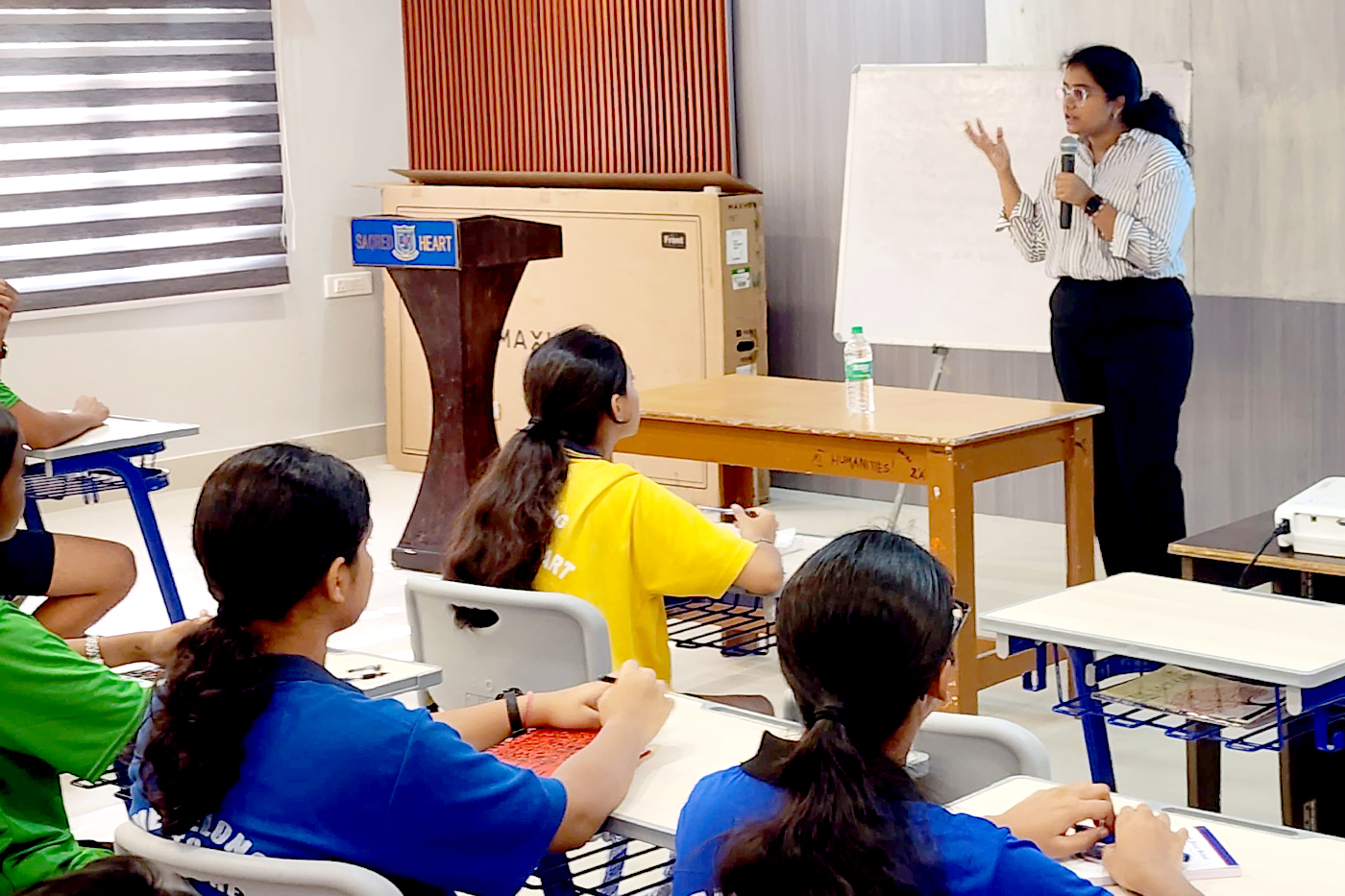Schools in India don’t teach soft skills. This entrepreneur does
Northeastern student Anjali Laddha won an Innovator Award for helping Indian students boost careers with AI-driven tools.

Growing up in Kolkata, India, Anjali Laddha wasn’t always a top student — many of her peers outperformed her academically.
It wasn’t until she moved to the U.K. and later the U.S. to study at Northeastern University that she realized what set her apart from other Indian students: strong soft skills. She discovered the power of communication and networking.
“There’s a very big lack of soft skills in the Indian education system,” she says.
Much of Indian education relies on rote learning, Laddha says, which doesn’t translate well into practical job skills. Seeing this gap between academic knowledge and real-world employability inspired her to launch her own business — Degree2Destiny, an artificial intelligence-driven career readiness platform.
Recently, Laddha won first prize in the Global Impact category at the 2025 Women Who Empower Innovator Awards for her venture.
“Every student at any level of their educational journey should have the ability to unlock their potential,” says Laddha, who studies international business and emerging markets at Northeastern.


The Innovator Awards honor Northeastern students, graduates and affiliated entrepreneurs seeking to make an impact in health, technology, sustainability and social innovation. Over the past five years, Women Who Empower has invested more than $1.8 million to help winners build and scale their ventures.
Laddha chose to launch her business in India, believing she could create greater value and reach more students there than in the U.S.
“I wanted to take it to India, primarily because I have seen the way people are confused here, especially students,” she says.
She launched Degree2Destiny in 2023, initially focusing on helping students master communication skills, use AI tools and build networks through online courses and in-person workshops. Today, the company’s main emphasis is AI literacy.
“Knowing AI is very important for anyone who wants to succeed,” she says. “The job market is changing already. It’s probably going to change by this time next year. I already see a change from last to this year.”
Editor’s Picks
Degree2Destiny works both with educational institutions and individual students in India’s Tier 2 cities (populations of 1 million to 4 million) and Tier 3 cities (100,000 to 1 million residents). More than 3,100 students have already participated in its workshops.
“We’ve had students who’ve built recipe books, because they want to be a chef in the future, we’ve had students who have built end-to-end apps, who’ve gotten into video editing and started doing some freelance work, and all of these things have started happening while they’re in high school,” Laddha says.
By using AI tools responsibly, she says, students can improve their productivity, build a personal brand or prepare to study abroad.
Laddha is also developing College2Career, an app designed to help college students secure internships. It assists users with resumes, cover letters, recruiter emails and LinkedIn profiles. The app is currently being tested by a limited number of users.
“It’s something that I really think can have a very big impact on college students, primarily because if you don’t have good internships, you are not going to be able to get a good job when you graduate, and that’s where most students struggle today,” Laddha says.
Beyond workshops and apps, Degree2Destiny also consults with educational institutions and small businesses in the education sector.
Laddha has been able to stay in India and travel across the country thanks to turning her startup into a Northeastern co-op. She also secured funding through Northeastern’s Startup Founder Co-op Program and the Presidential Global Scholarship grant. The cash prize from Women Who Empower will further support her company’s growth, she says.
Although entrepreneurship runs in her family — her grandfather and father both ran businesses — Laddha calls herself an accidental tech entrepreneur. She also recognizes the barriers women in India face.
“They’ve been told their whole life, ‘Well, you can’t be a computer science major.’ And we see that more, again, in Tier 2 and Tier 3 [cities], than in Tier 1,” she says.
She hopes to change that by empowering women entrepreneurs and female students in the future.
“That is also where the most impact is going to make a difference,” she says.










